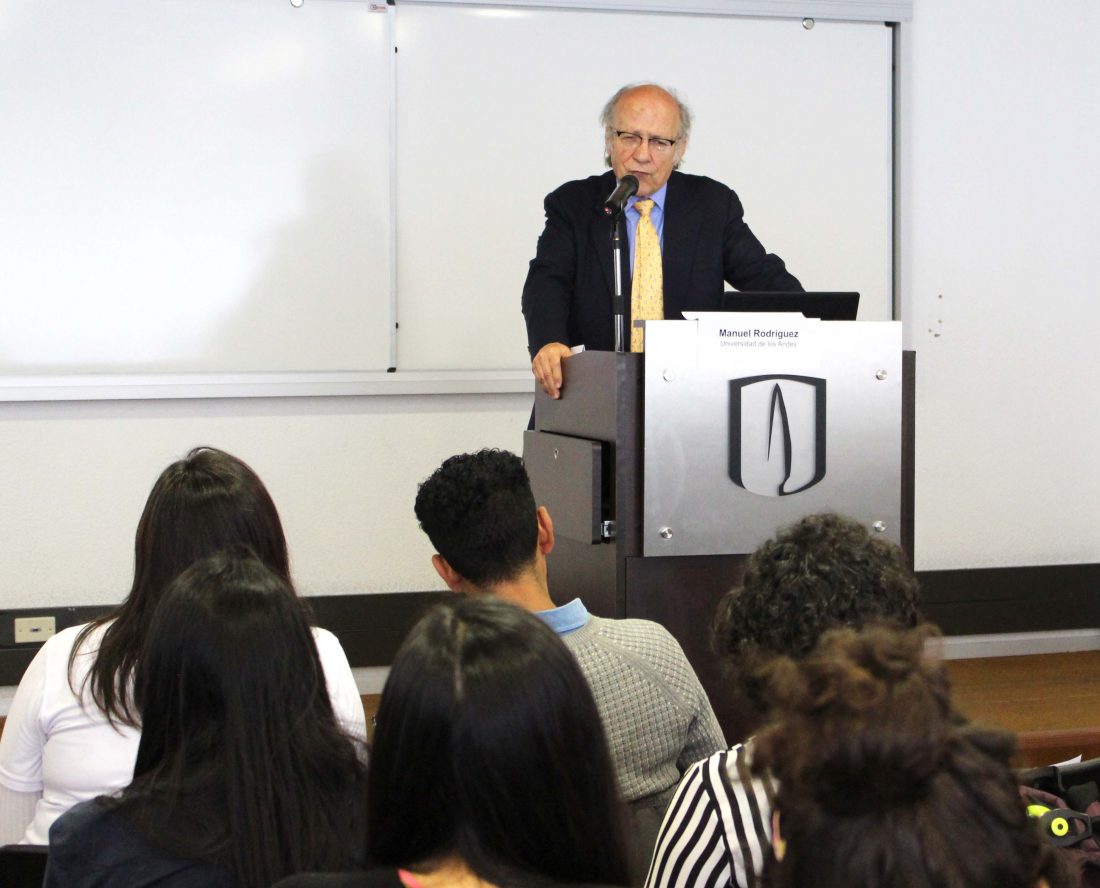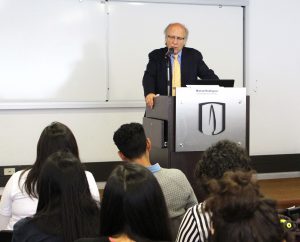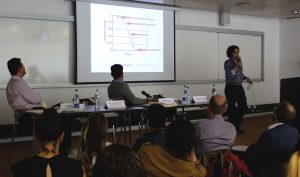
Seminar on Biodiversity and peacebuilding at Universidad de los Andes
On August 6, 2019, Universidad de los Andes hosted a seminar entitled “The Environment as a Victim of Peace? Deforestation and Biodiversity Conservation”, organised by the CAPAZ Institute, Universidad de los Andes and the Heinrich Böll Foundation in Colombia.
The seminar was hosted by Manuel Rodríguez Becerra, a renowned researcher in environmental issues, and attended by a group of experts from the region, as well as teachers, students and people interested in the discussion on the defence of the environment and biodiversity, in relation to the construction of territorial peace in Colombia.
Deforestation and peacebuilding
The first panel, moderated by the Academic Director of the CAPAZ Institute, Prof. Dr. Stefan Peters developed three cases: the situation in the Amazon region; the problems arising from the construction of mega-projects and the need for information that highlights cases of public corruption that run counter to the interests of the country and its communities.
“The Amazon is a treasure”, affirmed Estefanía Ciro, Colombian researcher and 2018 winner of the UNESCO Juan Bosch Prize. She said the problem of deforestation in the Colombian Amazon is not new. It is centuries old. The same models are followed and processes are accumulated. “Peace changes an order of forces in the territories, but the productive and extractivist models continue”, said the researcher.
Currently, the two most serious problems in this region are, on the one hand, the persistent idea that the communities and the land have to be controlled. This causes a dramatic break in the dynamics of local communities with the territory. Secondly, the coca-livestock-land grabbing process has shown that neither the State nor society is aware of the colonising processes in strategic zones such as Guaviare or Caquetá.
Claudia Ortiz, representative of the Rios Vivos organisation presented the serious socio-environmental situation caused by the hydroelectric mega-project Hidrosogamoso, in eastern Colombia. She denounced the deterioration and destruction of native flora and biological corridors due to the flooded areas, and the loss of connectivity of these corridors with the natural parks.
As a peasant member of the community adjacent to the megaproject, Ortiz spoke from her own experience: “now we have privatised water, agro-ecological changes, plagues and diseases that we didn’t have before. We suffer from mental health problems because there is no work; there are people who have been displaced. We are suffering what they call ‘development’ personally in our lives, but development for whom?”
In the current transition, the issue of environmental licensing is not clear and there is no awareness of the impact on water sources, for example. Resistance from communities endangers the lives of those who exercise it. This leads to uprooting and despair. “We are talking about living beings, but here they are out to get us all: the animals are being killed, the trees are being killed, we are being killed. We are committed to the peace process, but we want a peace that allows us to live in the territory”.
The activist highlighted the role of academia: “the communities were not informed of these prejudices before. Academia is very important in understanding our situation, in speaking and understanding technical language, and in defending our interests. It was very difficult for us to understand that language. If there is no language that adapts to the peasants, then we will not be able to communicate. There will be no peace like that”.
Journalist César Molinares, from portal 360 grados, confessed that these are complex issues that require in-depth investigative and journalistic work. Different interests are involved in projects with an environmental impact, mainly personal and business interests. Journalism is about making visible and translating what happens; it is also a transition from conflict journalism to post-conflict journalism.
Environmental public policies
The afternoon panel focused on environmental public policies and market issues. The forest, the jungle are transformed when infrastructure projects arrive in the territories. The problem of deforestation is that these areas are transformed into properties and become exploitable territories.
Although it is impossible to stop this development, we must bear in mind that the forests and jungles are inhabited by communities that have been able to cohabit with the environment. The challenge is not to let infrastructure mega-projects such as road corridors; for example, destroy ecosystems and natural reserve areas.
(Text: Claudia Maya. English version: Tiziana Laudato)






